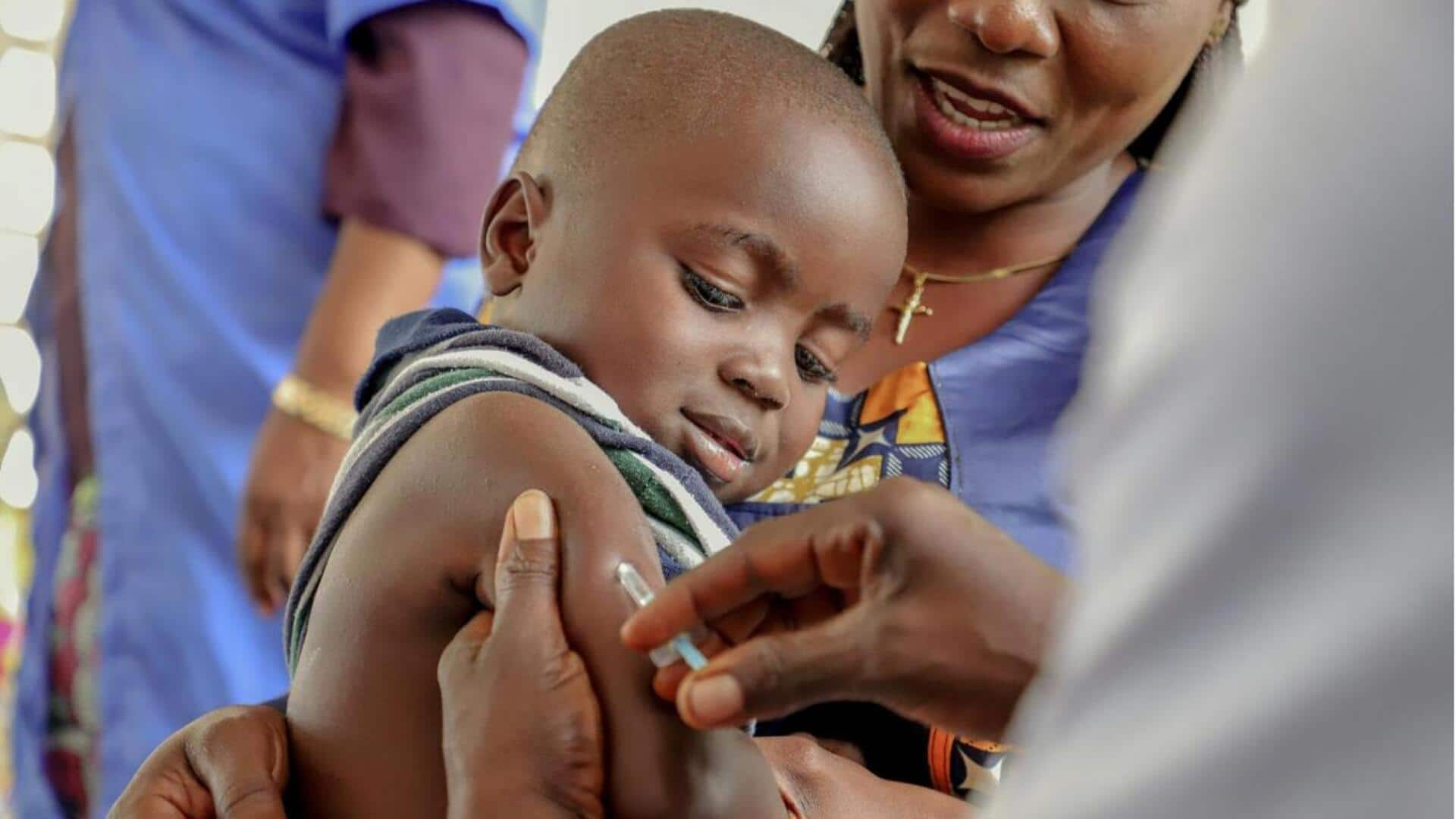
14.3 million children globally remain unvaccinated, reveals new report
What's the story
A new report has revealed that an estimated 14.3 million children across the globe are still completely unvaccinated. Every year, the World Health Organization (WHO) and United Nations Children's Fund (UNICEF) release a report on national immunization coverage estimates from 195 countries. The latest report, released on Monday, shows some progress in routine vaccinations but highlights major challenges, especially in conflict zones, which threaten global childhood vaccination efforts.
Vaccine disparity
Conflicts have reversed some gains made in immunizing children
Dr Kate O'Brien, Director of WHO's Department of Immunization, Vaccines and Biologicals, expressed concern over the slow progress in childhood vaccinations. "The global vision is for everyone everywhere to benefit from lifesaving vaccines," she said. However, rising conflicts have reversed some gains made in immunizing children, particularly in low- or middle-income countries. Children living in fragile or conflict-affected areas are three times more likely to be unvaccinated than those living in stable countries.
Hesitancy and misinformation
Vaccine hesitancy, distrust in institutions major challenges
The report also highlights vaccine hesitancy and distrust in institutions as major challenges to immunization efforts, especially in high-income countries. Dr. Ephrem Lemango, UNICEF's associate director for health, stressed that over 150 million lives have been saved through vaccination over the past 50 years. However, he cautioned that misinformation and vaccine hesitance reflect a broader mistrust in health systems. This has led to outbreaks of diseases like measles even in areas with high overall vaccination rates.
Access issues
Access to vaccines main reason for low vaccination coverage
Dr. O'Brien noted that access to vaccines and vaccination services remains the main reason millions of children are unvaccinated globally. She said many children are in dangerous settings where it's hard to reach them with vaccinations. The report also highlights concerns over funding for global vaccination efforts amid proposed cuts by the United States government. "Drastic cuts in aid, coupled with misinformation about the safety of vaccines, threaten to unwind decades of progress," Director-General Dr Tedros Adhanom Ghebreyesus said.
HPV progress
Report notes significant improvements in HPV vaccination coverage
The report also noted significant improvements in human papillomavirus (HPV) vaccination coverage, especially among girls. The percentage of girls receiving a first dose of the HPV vaccine increased from 27% in 2023 to 31% in 2024. Overall, while there hasn't been a major retreat globally in childhood vaccine coverage, more needs to be done, Dr. Dan Barouch from Beth Israel Deaconess Medical Center said. "I would hope...global health authorities prioritize childhood vaccination programs and that funding mechanisms are developed."